![Nobuka (Michel van Collenburg): Reiko [VINYL w/ DOWNLOAD & BOOKLET] (esc.rec.) Nobuka (Michel van Collenburg): Reiko [VINYL w/ DOWNLOAD & BOOKLET] (esc.rec.)](https://www.teuthida.com/productImages/misc4/31385.jpg)
The pre-apocalyptic intertwining story of a woman named Reiko, living in a city scarred by climate change and burdened with the imminent threat of viruses, wandering the streets haunted by demons, abstractly envisioned in sound through stunningly effective electronics, field recordings, and developed in parts with Michel Banabila and Rutger Zuydervelt (Machinefabriek).
In Stock
Quantity in Basket: None
Log In to use our Wish List
Shipping Weight: 24.00 units
EU & UK Customers:
Discogs.com can handle your VAT payments
So please order through Discogs
Sample The Album:
Michel van Collenburg-composer, performer
Michel Banabila-composer, performer
Rutger Zuydervelt-composer, performer
Marina Tadic-vocals
Click an artist name above to see in-stock items for that artist.
Label: esc.rec.
Catalog ID: esc.rec.89
Squidco Product Code: 31385
Format: LP
Condition: New
Released: 2021
Country: Netherlands
Packaging: LP GATEFOLD w/ BOOKLET
"Now, this is a genuinely lavish project. This takes the form of an LP in a gatefold sleeve, 12x12 inch booklet with pictures and a website with more images and text, all about the city of Reiko. There is even an "Augmented Reality app", which I haven't seen. Nobuka is fellow city man Michel van Collenburg, and if you know the size of Nijmegen, you could think I bumped into him a few times, but the truth is, I haven't. This is an unbiased review!
The idea behind Reiko is that it is a story about a city "scarred by the effects of climate change and burdened with the imminent threat of viruses" and a girl "who has her own demons. Anxiety, depression, a dead-end job. Wandering the streets, swallowed by a mass of commuters." Music for the end of times, but are we aware of this impending end? You could think this results in top-heavy depressing music, and while it is dark, it is not without hope.
Nobuka has guest players in four songs, twice Michel Banabila and once Machinefabriek and once Marina Tadic (of Eerie Wanda/Kidbug and formerly living in this beautiful city). Nobuka uses field recordings, old tape recorders and analogue equipment in his music, which lumps him into a crowded field of similar musicians, but there are also some differences. Maybe the variations come via his guest musicians (the very rhythmic 'The People', with Machinefabriek, is one undeniable example of doing things differently). Also, in his solo pieces, Nobuka strives not for bleak ambient industrial soundtracks, but there is also a very musical undercurrent. For instance, the piano in 'The Sorrow' sits on top of industrial rubble, slowly fading away for birds twitter. And yes, there is also the horror of 'The Ghosts', with its mass of violin sounds, growing from one to many and ascending to one again. The two pieces with Michel Banabila are dreamy and unsettling at the same time. Nobuka cleverly waves ease and unease together in his music, and he amazingly does that with considerable ease (pun intended). Sometimes there is friction between the sounds, and I thought there was an uneasiness that didn't work, but it all started to make sense upon repeated listening. The hissing and skipping of vinyl, the many stringed instruments dropping in and out of the mix, the ghostly drones and the melodic interjections.
All these pieces could easily fit a film score or perhaps be part of the same movie. I can envisage such a thing, a split-screen animation, about the city and the girl and the two overlapping at times. If I knew to make such a thing (and had the time!), then I'd do it with this music as the guiding soundtrack. It is all very evocative music.
Let me end this review by giving both the label's website and the project, as it surely deserves your utmost interest."-Frans de Waard, Vital Weekly
"Today is the first day she begins longing for the end.
Is it possible to be aware of living in a pre-apocalyptic time? Or does that
realization come after the fact? But if you knew in advance, what would you do? Prepare for the worst, or live life to the fullest?
A city.
Scarred by the effects of climate change and burdened with the imminent threat of viruses and political unrest.
A girl.
With her own demons. Anxiety, depression, a dead end job. Wandering the streets, swallowed by a mass of commuters.
These storylines are intertwined and form the inspiration for Reiko. A musical and visual experiment. An exploration, or even a juxtaposition of the collective and the individual human mind. A project that encompasses an album on vinyl, a longform poem, a website and an Augmented Reality app."-Nobuka
Get additional information at Road to Reiko
Artist Biographies
• Show Bio for Michel van Collenburg Michel van Collenburg is a Dutch sound artist based in Nijmegen, Netherlands. His work is composed using field recordings, analog electronics, tape recorders and similar sonic sources. He works in both rhythmic and soundscape environments, and his live performances are often meditative and hypnotic. He cites his influences as Actress, Klara Lewis, Thom Yorke, Ryuichi Sakamoto, Gajek and Machinefabriek. ^ Hide Bio for Michel van Collenburg • Show Bio for Michel Banabila "Michel Banabila, born 1961, is a sound artist, composer, and producer. Banabila releases music since 1983 and has produced musical scores for numerous films, documentaries, theatre plays and choreographies. He worked / performed in The Netherlands, Poland, Lebanon, UK, South Africa, Russia, Japan, Spain, China, USA and Belgium. Banabila is especially keen on mixing disciplines and music styles, using elements and influences from jazz, electronic music, classical and world music. Therefore there is no particular genre to categorize Banabila's music. In addition to acoustic instrumentation, Banabila uses electronics, field recordings, and snippets from radio, tv and internet. He collaborated with different types of artists like Anton Goudsmit, Erkan Oğur, Hanyo van Oosterom, Holger Czukay, Joshua Samson, Machinefabriek, Mete Erker, Oene van Geel, Radboud Mens, Salar Asid, Sandhya Sanjana, Scanner, Yaşar Saka , Eric Vloeimans, and Zenial, among others. Besides making albums and musical scores, Banabila works with theatre, dance and visual art on more conceptual artistic projects. He builds a database with samples; uses the city environment as a recording studio, collects fragments of spoken texts, which he composes into soundscapes, audio/visual installations and performances. Using recordings of speech in several languages Banabila experiments with the tonality of words and the "sound system" of languages. Banabila worked on various projects with video artists Geert Mul, Olga Mink, and photographer Gerco de Ruijter. With Geert Mul he has an audiovisual set, Big Data Poetry, which they performed live in venues like The Barbican (London) during the Logan Symposium 2014, Yukunkun (Beirut) during the Global Week For Syria 2014, and TENT (Rotterdam) during Sound Spectrums 2012. With Olga Mink he performed at the LUX Festival (Sevilla), the VAD Festival (Girona) and the State Of The Image Festival (Arnhem) in 2006. For Gerco de Ruijter he did sound design for several stop-frame animations, like the critically acclaimed Crops, shown in the Hirhshorn Museum (2013 / Washington DC) and Ringdijk at Panorama Mesdag (2016 / The Hague)" ^ Hide Bio for Michel Banabila • Show Bio for Rutger Zuydervelt "Machinefabriek is the alias of Rutger Zuydervelt. Rutger's music combines elements of ambient, noise, minimalism, drone, field recordings and electro-acoustic experiments. His pieces can be heard as an attempt to create sonic environments for the listener to dwell in. Finding tension in texture, tone and timing, the result can be very minimalistic at first glance, but reveals itself upon closer listening. The devil is in the details. Rutger was born in 1978 in Apeldoorn (The Netherlands) and now resides in Rotterdam. He started recording as Machinefabriek in 2004. After a series of self released cd-rs, his official debut Marijn was issued in 2006, with great critical acclaim. Since than, a solid stream of music was released on labels such as Type, Important, Home Normal, 12K, Entr'acte, Dekorder, Miasmah, Consouling Sounds, Experimedia and Staalplaat. He performed all over the globe, from Canada to Israel and from Russia to Japan. Rutger collaborated (on record and/or live) with numerous artists, such as Steinbrüchel, Jaap Blonk, Aaron Martin, Peter Broderick, Frans de Waard, Mats Gustafsson, Steve Roden, Gareth Davis, Stephen Vitiello, Michel Banabila, Dirk Serries and Dead Neanderthals, amongst many others. He frequently works with film makers, like Makino Takashi, Mike Hoolboom, John Price, Paul Clipson and Chris Teerink, for whom he composed a soundtrack for his documentary about Sol LeWitt. Rutger also recorded the music for the Canadian drama The Cold and the Quiet from 2014. Furthermore, his music was used in Edward Burtynsky's Watermark, the drama Stone (with Robert DeNiro and Edward Norton) and Josh Fox' influential Gasland and Gasland Part II documentaries. Besides films, Rutger also composes music for dance pieces, like Alix Eynaudi and Kris Verdonck's EXIT (premiéred at the Haus der Kulturen der Welt, Berlin), Alexander Whitley's The Measures Taken (for the Royal Opera in London) and Beheld (for Candoco Dance Company), and multiple pieces by Spanish/Dutch choreographer Iván Pérez. Then there's Rutgers installation work, in which the dialogue with the environment plays an important role. He did projects for Stedelijk Museum Amsterdam, NAi (Dutch Architecture Institute), the new Armando Museum MOA, Sounds Like Audio Art in Saskatoon (Canada), the Into the Great Wide Open Festival, Netwerk in Aalst (Belgium) and children's museum Villa Zebra in Rotterdam." ^ Hide Bio for Rutger Zuydervelt • Show Bio for Marina Tadic "Marina Tadić (Serbian Cyrillic: Марина Тадић; born 29 June 1983) is a Serbian pop and pop-folk singer. She was born 29 June 1983 in Valjevo and lives in Belgrade. She has been interested in music and acting arts since her childhood, was a member of school drama classes and acted in school plays. She graduated at DIF faculty in Novi Sad; while studying, she has shortly been a professor of swimming school. She had a radio show and sold pictures in a photo shop at weekends. She knew many musicians from Valjevo and started to perform with them, with her parents not supporting her in favor of the faculty. She released her first album in December 2008, with songs "Još sam ona stara", "Ljubi, ljubi" and "Nisi bio tu" among others. In 2010 she released a single "Bilo nam je mega, mega". In 2011 she promoted another single, "Disco devojka", with music video. In 2012 she recorded her second album, with City Records label again; the most listened songs, that became hits, are "Bol za bol" and "Otrove". In 2013 she got a role of Nikolina in the season 3 of a Serbian-Montenegrin TV show Budva na pjenu od mora [sr], where she collaborated with Mima Karadžić. She also had a guest appearance in a Serbian TV show Folk [sr]. She was part of the campaign 'Stop nasilju nad ženama' (English: Stop violence against women) and recorded a song "Moj lepi skote" (lit. 'My Beautiful Bastard') relating to this. In 2014 she promoted a single "Zaboravi". In 2015 she released feat "Sama" with Marko Đurovski and a single "Novi život". In 2016, song "Ljubav stara" saw its audience, and Tadić announced a new album of autobiographical character, U zagrljaju tvom with Grand Production. Her 2017 single's "Ubica" authors are Jala Brat and Buba Corelli, with Jala Brat being also a post-chorus singer. In the private life, she has been linked-by various media-with former football player Mateja Kežman, former water polo player Vanja Udovičić and a basketball player Miloš Teodosić, as well as retired football player Ivica Dragutinović. She likes sports and ordinarily visits a gym." ^ Hide Bio for Marina Tadic
Have a better biography or biography source? Please Contact Us so that we can update this biography.
7/1/2025
Have a better biography or biography source? Please Contact Us so that we can update this biography.
7/1/2025
Have a better biography or biography source? Please Contact Us so that we can update this biography.
7/1/2025
Have a better biography or biography source? Please Contact Us so that we can update this biography.
Track Listing:
SIDE A
1. Begin 02:06
2. A Set Of Four Dining Chairs 06:59
3. A Memory 01:39
4. Of Mourners And Murderers 02:34
5. Of Lovers And Innocent Bystanders 03:53
6. Again 03:04
SIDE B
1. The City 03:10
2. The People 03:52
3. The Sorrow 02:50
4. The Ghosts 06:41
5. The Love 03:22
Vinyl Recordings
Physical Releases that include Download Codes
Electro-Acoustic
Compositional Forms
Electroacoustic Composition
Spoken Word
European Improvisation, Composition and Experimental Forms
Staff Picks & Recommended Items
New in Experimental & Electronic Music
Search for other titles on the label:
esc.rec..


![Nobuka (Michel van Collenburg): Reiko [VINYL w/ DOWNLOAD & BOOKLET] (esc.rec.) Nobuka (Michel van Collenburg): Reiko [VINYL w/ DOWNLOAD & BOOKLET] (esc.rec.)](https://www.teuthida.com/productImages/full/31385.Full.jpg)





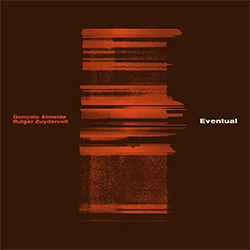

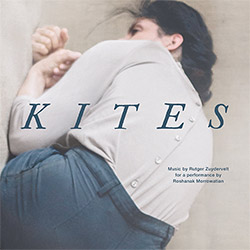
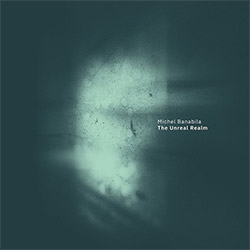


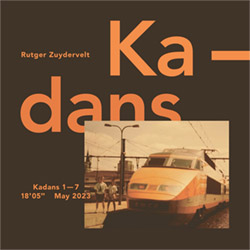
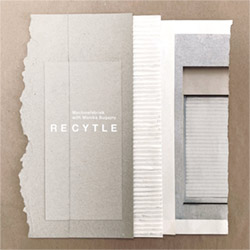
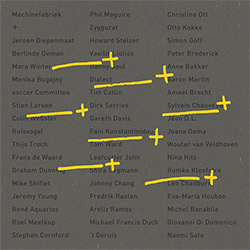



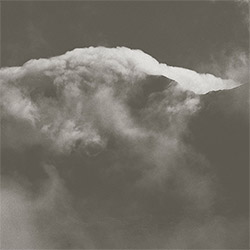
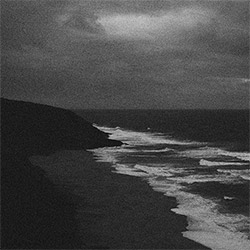
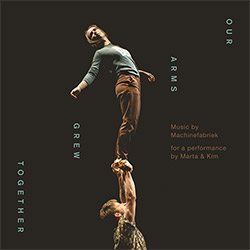


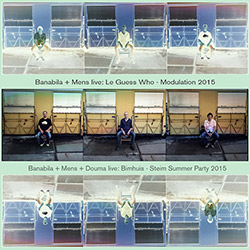
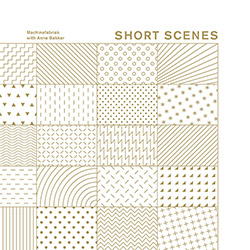
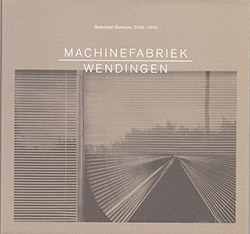











![Deupree, Jerome / Sylvie Courvoisier / Lester St. Louis / Joe Morris: Canyon [2 CDs]](https://www.teuthida.com/productImages/misc4/36404.jpg)


![Eternities: Rides Again [CASSETTE]](https://www.teuthida.com/productImages/misc4/36247.jpg)

![Lopez, Francisco: Untitled (2021-2022) [2 CDs]](https://www.teuthida.com/productImages/misc4/36438.jpg)




![Eventless Plot | Haarvol: The Subliminal Paths [CASSETTE + DOWNLOAD]](https://www.teuthida.com/productImages/misc4/36232.jpg)












![Eventless Plot | Francesco Covarino: Methexis [CASSETTE + DOWNLOAD]](https://www.teuthida.com/productImages/misc4/36231.jpg)



![Das B (Mazen Kerbaj / Mike Majkowski / Magda Mayas / Tony Buck): Love [VINYL]](https://www.teuthida.com/productImages/misc4/36329.jpg)



![Hemphill Stringtet, The: Plays the Music of Julius Hemphill [VINYL]](https://www.teuthida.com/productImages/misc4/36409.jpg)



![Halvorson, Mary Septet: Illusionary Sea [2 LPS]](https://www.teuthida.com/productImages/misc4/17952.jpg)






![Money : Money 2 [2 CDs]](https://www.teuthida.com/productImages/misc4/35894.jpg)




![Klinga, Erik: Elusive Shimmer [VINYL]](https://www.teuthida.com/productImages/misc4/36258.jpg)
![CHANGES TO blind (Phil Zampino): Volume 9 - I Wave on a Fine Vile Mist [CD + DOWNLOAD]](https://www.teuthida.com/productImages/misc4/36061.jpg)

![Wallmart / Rubbish: Asset Protection [split CD]](https://www.teuthida.com/productImages/misc4/35900.jpg)


![+Dog+: The Family Music Book Vol. 5 [2 CDs]](https://www.teuthida.com/productImages/misc4/35897.jpg)
![Kuvveti, Deli : Kuslar Soyledi [CASSETTE w/ DOWNLOAD]](https://www.teuthida.com/productImages/misc4/36107.jpg)

![Nakayama, Tetsuya: Edo Wan [CASSETTE w/ DOWNLOAD]](https://www.teuthida.com/productImages/misc4/36105.jpg)




![Yiyuan, Liang / Li Daiguo: Sonic Talismans [VINYL]](https://www.teuthida.com/productImages/misc4/35957.jpg)
![Brown, Dan / Dan Reynolds: Live At The Grange Hall [unauthorized][CASSETTE]](https://www.teuthida.com/productImages/misc4/36245.jpg)








![Palestine, Charlemagne / Seppe Gebruers: Beyondddddd The Notessssss [VINYL]](https://www.teuthida.com/productImages/misc4/36206.jpg)
![Palestine, Charlemagne / Seppe Gebruers: Beyondddddd The Notessssss [NEON GREEN VINYL]](https://www.teuthida.com/productImages/misc4/36207.jpg)

![Laubrock, Ingrid: Purposing The Air [2 CDs]](https://www.teuthida.com/productImages/misc4/35639.jpg)

![Yoko, Ono / The Great Learning Orchestra: Selected Recordings From Grapefruit [2 CDs]](https://www.teuthida.com/productImages/misc4/35841.jpg)









![Zorn, John / JACK Quartet: The Complete String Quartets [2 CDs]](https://www.teuthida.com/productImages/misc4/35609.jpg)

![Lonsdale, Eden: Dawnings [2 CDs]](https://www.teuthida.com/productImages/misc4/35480.jpg)



![Sorry For Laughing (G. Whitlow / M. Bates / Dave-Id / E. Ka-Spel): Rain Flowers [2 CDS]](https://www.teuthida.com/productImages/misc4/35985.jpg)

![Rolando, Tommaso / Andy Moor : Biscotti [CASSETTE w/ DOWNLOADS]](https://www.teuthida.com/productImages/misc4/36106.jpg)


![Electric Bird Noise / Derek Roddy: 8-10-22 [CD EP]](https://www.teuthida.com/productImages/misc4/35970.jpg)








![Elephant9 : Mythical River [VINYL]](https://www.teuthida.com/productImages/misc4/34624.jpg)



![Elephant9 with Terje Rypdal: Catching Fire [VINYL 2 LPs]](https://www.teuthida.com/productImages/misc4/35355.jpg)
![Deerlady (Obomsawin, Mali / Magdalena Abrego): Greatest Hits [VINYL]](https://www.teuthida.com/productImages/misc4/34876.jpg)







![Surplus 1980: Illusion of Consistency [CD]](https://www.teuthida.com/productImages/misc4/35069.jpg)
![Staiano, Moe: Away Towards the Light [VINYL + DOWNLOAD]](https://www.teuthida.com/productImages/misc4/35037.jpg)
![Coley, Byron: Dating Tips for Touring Bands [VINYL]](https://www.teuthida.com/productImages/misc4/17906.jpg)

![Lost Kisses: My Life is Sad & Funny [DVD]](https://www.teuthida.com/productImages/misc4/lostKissesDVD.jpg)